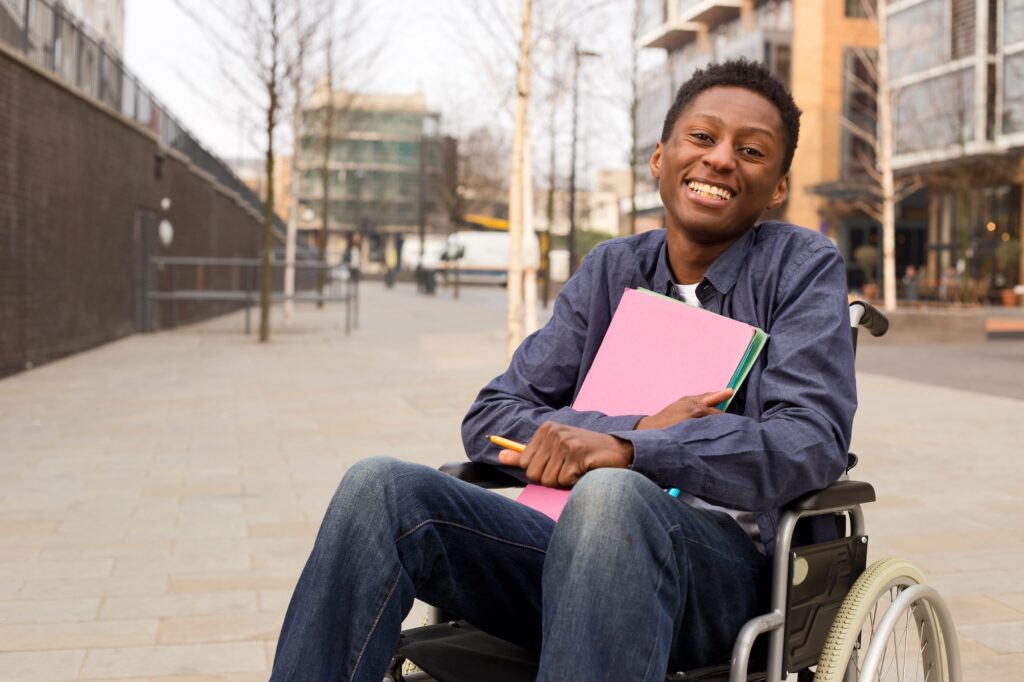
Leaving high school is a big step for any student. It can feel exciting, but also overwhelming — especially for students with disabilities. Some students may plan to go to college or trade school. Others may want to start a job or live more independently. No matter what their goals are, each student needs the right support to help them succeed.
That’s where transition planning comes in. Transition planning helps students prepare for life after high school. It not only gives them the tools and skills they need to be successful, but it also connects them to the right programs and services for their future. As a parent, ensuring that your teen has access to the right resources can be key to facilitating a smooth transition.
5 benefits of transition planning for students with disabilities
- Builds independence — Transition planning helps students take control of their future. With transition planning, they can learn how to make decisions and ask for help when needed. Planning encourages students to express what they want for their future. While planning your teen’s transition from high school, you can also help them practice daily living tasks. These tasks might include using transportation or managing money. Practicing these tasks while planning for the future can help your teen feel more independent. Many students feel nervous about life after high school. A transition plan gives them the tools and confidence to move forward.
- Creates a clear plan for the future — Without a plan, the future can feel uncertain. Transition planning provides a step-by-step guide to help students and families prepare. Transition planning guidance may be offered by treatment and support services for people with disabilities. A professional can help identify education and career options that match a student’s abilities and life goals. They can also connect students to programs and services that offer support after high school. Many students want to get a job after high school. Some may need extra training and support to develop the skills needed for work. Job planning can help identify opportunities and highlight skills that need further development.
- Builds communication skills — Building social and communication skills can be a key part of your teen’s transition from high school. Transition planning can help students build these skills by preparing them for new social interactions like conversations with professors, bosses and co-workers. A transition planning program may also highlight the importance of self-advocacy. This can help students learn how to speak up for themselves. Stronger communication skills tend to help people feel more comfortable in school, work and social settings.
- Connects students to resources — Many students with disabilities benefit from long-term support. Leaving high school may mean leaving behind some important resources. Transition planning can help graduating students connect to programs that can assist them as adults. For example, they can learn about transportation services, healthcare programs and housing for independent living. The right services can make it easier for students to succeed and stay independent.
- Reduces family stress — Parents and caregivers for students with disabilities often worry about what will happen after high school. A good transition plan can help your family feel more prepared and confident. It will give your family a road map for the future and illuminate how you can help your child reach their goals. A strong plan should bring peace of mind to the student as well as their family.
What does transition planning look like for students with disabilities?
Transition planning is a step-by-step process that helps students get ready for adulthood. It helps them set goals, build essential skills and find the right support. This planning happens while the student is still in high school. Planning doesn’t just need to be between a student and their parents — it can be helpful to get insights from teachers, counselors and therapists as well. You may also be able to access government-run transition resources. For example, the Missouri Department of Elementary and Secondary Education offers transition-related services for eligible students.
Transition planning is a multifaceted process. It might involve:
- Career exploration
- College planning
- Job task training
- Independent living skills practice
- Connecting to community resources
A treatment provider for people with disabilities may be able to assist you in this process. Some potentially helpful services during transition include employment programs and neuropsychological testing.
A neuropsychological reevaluation is a special type of testing. Among other things, it looks at how someone learns, remembers and processes information. This kind of assessment can be especially helpful when a student is getting ready for a significant life change. If your child is planning a transition to a higher level of education, employment or independent living, a neuropsychological assessment can help inform your family’s next steps.
Ability KC can help your child navigate major transitions
Ability KC offers assistance in transition planning. We also have a Beyond Transitions camp, which helps children gain the independence to thrive through adolescence. We can help your child plan their next steps and develop the skills they need to thrive in the next phase of their life.
Ability KC is a designated Comprehensive Outpatient Rehabilitation Facility (CORF) with a Commission on Accreditation of Rehabilitation Facilities (CARF) accreditation. Contact our team today for more information or to schedule an initial appointment. You can also fill out our Build Your Plan questions designed to help our team better understand your needs and assist you in figuring out your next steps with us.